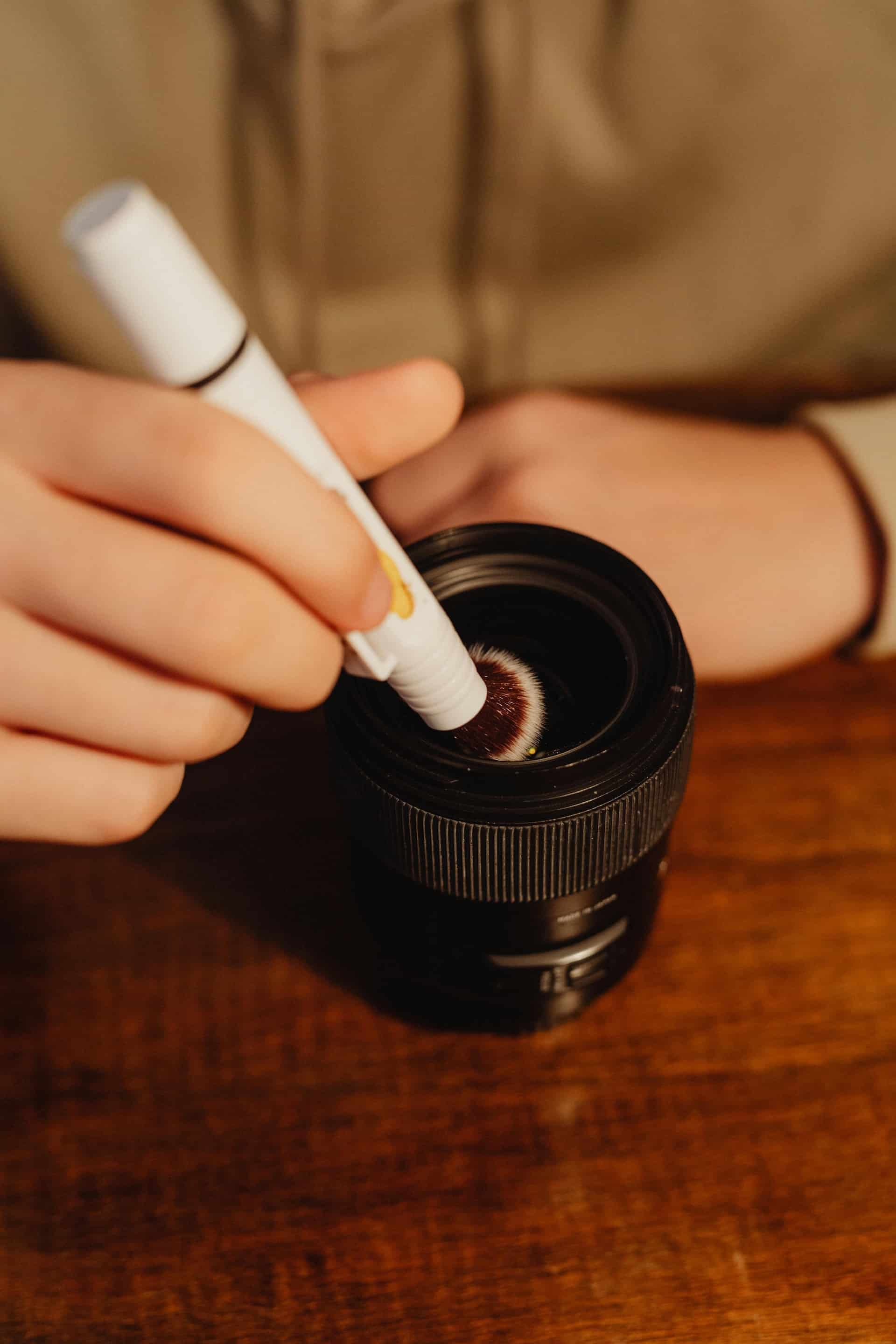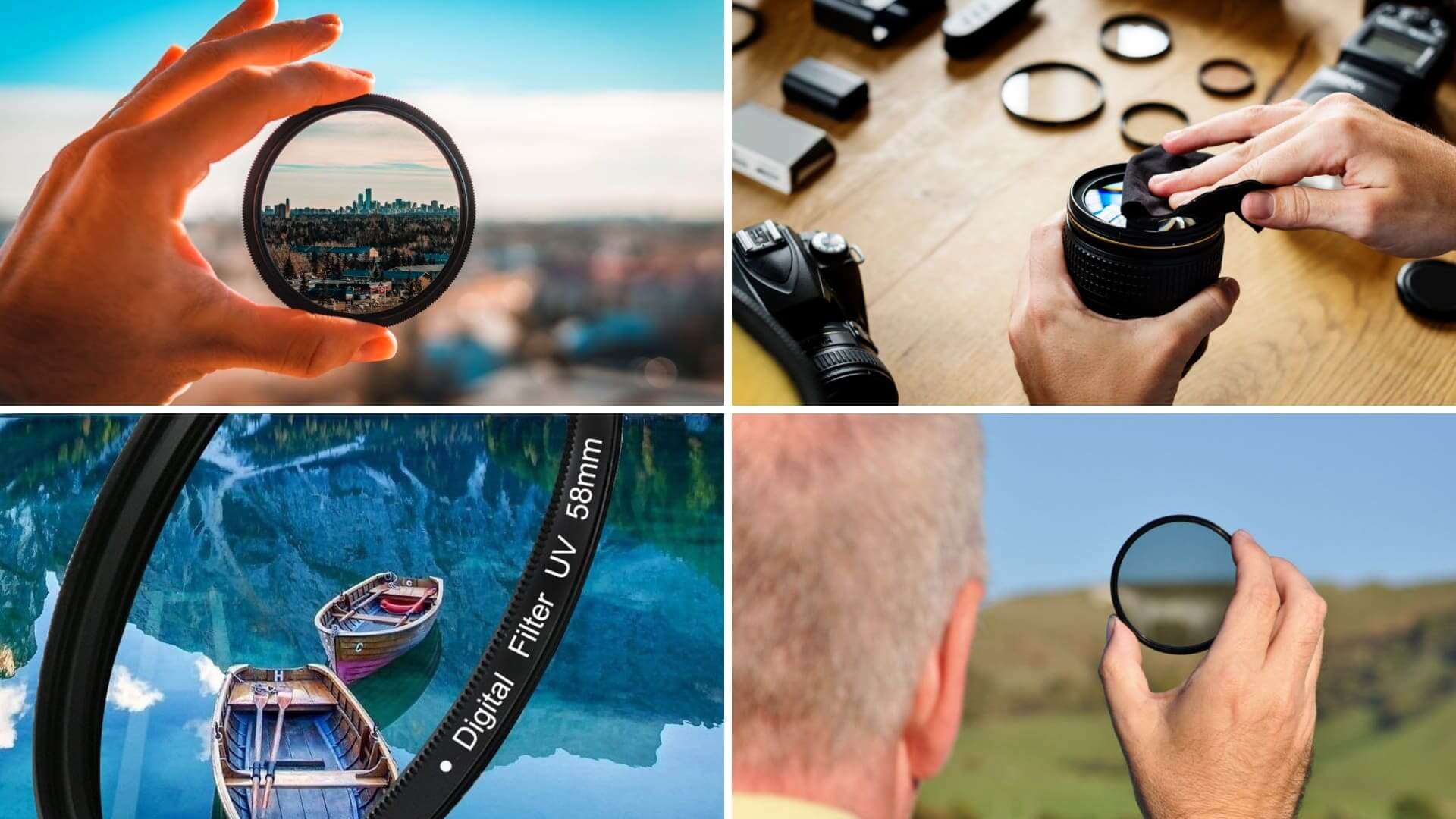Have you ever heard that a UV protection lens filter for your lens is like cheap lens insurance? You might be wondering how true this is. In this article, we’ll take a look at just that. We’ll also take a look at why the UV protection lens filter was invented in the first place and what its utility is in digital photography today. By the end of this read, you’ll have a better understanding of the pros and cons of a UV protection lens filter and when to use one and when to not.
What is a UV protection lens filter?
UV protection lens filter definition
There are many different types of filters for camera lenses. The UV filter ranks among the oldest ones. To differentiate it from other types of photography tools, let’s take a look at the definition.
UV PROTECTION LENS FILTER DEFINITION
What is a UV lens filter?
A UV protection lens filter attaches to the front of a camera lens and reduces the amount of ultraviolet light that passes into a camera. This is especially important when shooting film photography. Film stock is more sensitive to UV light and can cause discoloration in photos.
Digital cameras, however, are not as sensitive to UV light. However, photographers who do shoot digital still utilize UV filters to protect the frontal elements of their lens.
What does a UV protection lens filter do?
- Reduce ultraviolet light
- Protect lens from scratches
- Protect lens from dust, liquids, and other hazards
UV filter camera lens modifier
Blocks UV Light
Before the days of digital photography there was only film. Photographers noticed that some of their photos had some discoloration. The appearance of blue hues bled in their photos. They soon realized that the cause of this was ultraviolet light or UV light.

Discoloration from UV protection lens filter
To fix this problem, photographers invented the UV protection lens filter. This UV filter camera lens modifier minimizes the amount of ultraviolet light let into the camera. With the advent of digital technology in DSLR cameras and mirrorless cameras, UV light became less of an issue. Digital cameras were not as sensitive to UV light. However, digital photographers still found use for the filter as physical protection for the frontal elements of their lenses.
Related Posts
Other uses of a UV filter camera modifier
Protects the lens
Let’s clarify how much protection an ultraviolet lens filter actually gives you. The most direct means of damaging any type of camera lens is by dropping it. Unfortunately, UV filters often have much weaker glass than the elements in most types of camera lenses. This means that they will often break when your lens otherwise would not.
UV filters also do not protect your lens from internal damage. Within a lens, there are many more glass elements than the frontal element. Dropping your lens with one on will pose just as much damage to internal damage as without one. To check out a real drop test, check out the video below.
UV filter camera modifier • Do You Need Them Or Not?
Even though lens filters are not effective at protecting your lens from drops, it can protect your lens from other hazards. They can protect your lens from scratches that can occur from small contact with rough surfaces.
They can protect your lens from environmental hazards such as dust, dirt, snow, and even salt in the air when you are shooting by the ocean.
What does a UV filter do?
To recap, if you are a photographer or videographer with an expensive lens and you regularly shoot in environments that pose hazards, a UV filter for your lens is a good idea to have handy. Of course, there are some downsides to introducing new elements to your lens.
Cons of UV protection lens filter
Slightly reduces image quality
When you add an ultraviolet filter to your lens, it creates another medium through which light needs to travel though before creating an image. This means that the quality of your image will be slightly reduced.
UV filters can reduce the amount of light let into a camera between 0.5% to 5%. This will inherently reduce the resolution of your image. The difference, however, is very minimal. The reduction in quality can be almost unnoticeable or at least fixed in editing.
The variation in image quality depends on the quality of your ultraviolet filter. Remember, you get what you pay for. Investing just a little bit more money into your filters will help you maintain image quality while also protecting your lens. To understand the impact a cheap vs quality filter can have on your photo, check out the comparison video below.
$5 VS $100 UV filter camera lens modifier • DO YOU NEED ONE AT ALL?
What you do need to be careful of is any light aberrations or unintentional lens flares. The extra glass element can cause unwanted flares when shooting directly at a light source.
Related Posts
UV protection filter conclusion
Do you need a UV Lens Filter?
After all of this information you may be wondering “Do I need a UV filter on my lens?” The answer to that question is that it depends. What or where are you shooting?
If you are shooting an event around a lot of people or action, you may be more prone to accidents. Guests spill drinks, there may be confetti, there may be dancing and someone may bump into your lens. Who knows.
Maybe you shoot action sports. Your shoots take you to the desert, snowy mountains, or beaches. All of which are environments where dust, salt, and water particles fill the air.

Dirty lenses are a nightmare • UV protection filters can help
In situations like these, a filter would be a good idea to at least provide protection for the frontal element of your lens. Sure, without a Ultraviolet filter you can just clean off your lens. But even cleaning your lens with professional tools will cause an accumulation of micro scratches and damage your lens over time.
Keyword here...
When not to use a UV protection filter
If UV lens filters can protect your camera why not leave it on all the time? Again, it will depend on what you are shooting. If you are shooting studio photos as artistic conceptual photography, image quality may be among your higher priorities. Therefore, using camera lens filters is not ideal as it may slightly reduce your photos quality.
Typically, shoots like these are in controlled settings anyway and do not require as much protection from environmental hazards. Here is a great video explaining the pros and cons of UV filters and how you can decide for yourself if you need one for what you are shooting.
Camera UV protection filter: Necessary or Nuisance?
As mentioned in the video, you’ll want to avoid using UV filters when shooting directly at light sources like sunsets. The extra glass element can cause the light to create unwanted flares or aberrations.
Having a camera lens UV filter in your camera bag is never a bad idea. However, it is unnecessary to leave one on your lens at all times. Based on all of the information in this article, it is ultimately up your judgement to determine when or when not to use one.
UP NEXT
A Guide to Types of Camera Lenses
Lens filters are important to taking great photos. What’s even more important are the lenses themselves. Understanding different types of lenses will give you a better understanding which one will best tell the story of your photograph. Learn more about the various types of camera lenses in our next article.
Up Next: A Guide to Types of Camera Lenses →
Showcase your vision with elegant shot lists and storyboards.
Create robust and customizable shot lists. Upload images to make storyboards and slideshows.
